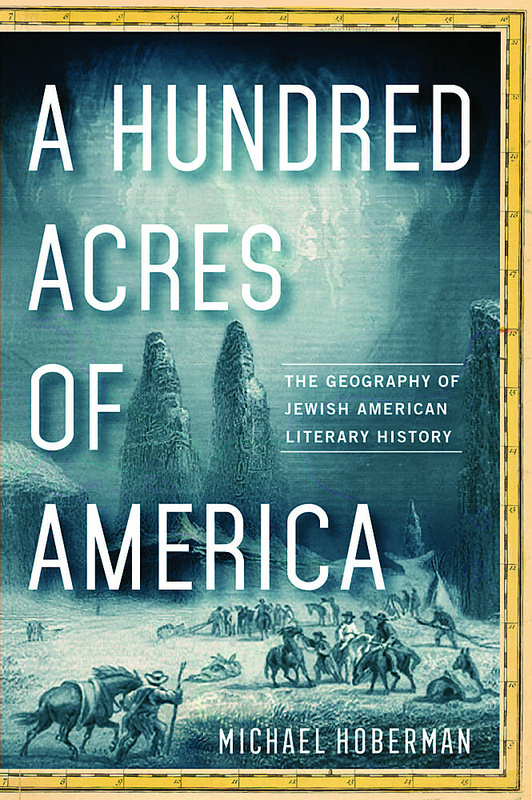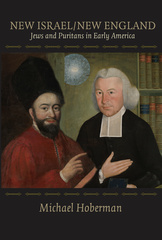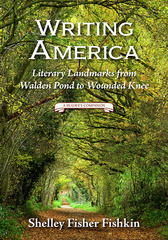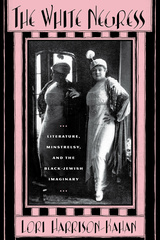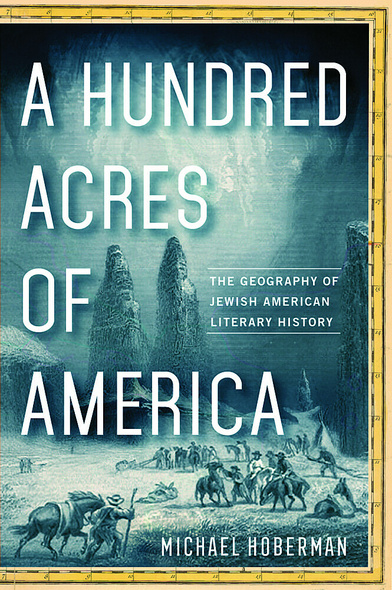
198 pages, 6 x 9
Paperback
Release Date:06 Dec 2018
ISBN:9780813589695
Hardcover
Release Date:06 Dec 2018
ISBN:9780813589701
A Hundred Acres of America
The Geography of Jewish American Literary History
Rutgers University Press
2019 Choice Outstanding Academic Title
Jewish writers have long had a sense of place in the United States, and interpretations of American geography have appeared in Jewish American literature from the colonial era forward. But troublingly, scholarship on Jewish American literary history often limits itself to an immigrant model, situating the Jewish American literary canon firmly and inescapably among the immigrant authors and early environments of the early twentieth century. In A Hundred Acres of America, Michael Hoberman combines literary history and geography to restore Jewish American writers to their roles as critical members of the American literary landscape from the 1850s to the present, and to argue that Jewish history, American literary history, and the inhabitation of American geography are, and always have been, contiguous entities.
Jewish writers have long had a sense of place in the United States, and interpretations of American geography have appeared in Jewish American literature from the colonial era forward. But troublingly, scholarship on Jewish American literary history often limits itself to an immigrant model, situating the Jewish American literary canon firmly and inescapably among the immigrant authors and early environments of the early twentieth century. In A Hundred Acres of America, Michael Hoberman combines literary history and geography to restore Jewish American writers to their roles as critical members of the American literary landscape from the 1850s to the present, and to argue that Jewish history, American literary history, and the inhabitation of American geography are, and always have been, contiguous entities.
Michael Hoberman has opened up freshly the pathway in Jewish American writings about the sense of place, how Jewish life in America has come to be and feel at home.
At once critically imaginative and rigorously methodological, A Hundred Acres of America is a genuinely exciting, pathbreaking work of breathtaking historical, geographical, and cultural scope.
Hoberman brilliantly revises notions of how quintessentially American landscapes shaped American Jewish writing. Elegantly written and cogently argued, this study unsettles the stories we think we know about Jewish immigration and territorial belonging in America.
'A Hundred Acres is a worthy and lucid genealogy of the under-explored Jewish American geographical imagination, presented convincingly as an engagement with as well as departure from certain forms of dominant U.S. spatiality. Hoberman's nimble treatment of key texts captures the Jewish stamp on iconic American places, from 'the frontier' to the city and the 'suburban pastoral' as well as the Americanization of Jewish spaces elsewhere and, importantly, contributes to a shift in Jewish American literary scholarship away from the classic topics of immigration and assimilation toward a multidimensional criticism.'
The Jewish Preview of Books—December 2018' by Rachel Scheinerman
The book discusses a variety of places important to Americans, including the evolving West of the 19th century, the small towns of the Midwest and 20th-century suburbia. It ends with a landscape that has been significant to the Jewish people for thousands of years: Israel [and] suggests that the works it examines ask questions that aren’t easy to answer — but then asking hard questions is a sign of good literature.
Highly recommended.
Hoberman Reads from Book,' mention in The Shelburne Falls and West County Independent
June 8-9, 2019: Jewish American Journeys: Michael Hoberman’s Books'
http://americanstudier.blogspot.com/2019/06/june-8-9-2019-jewish-american-journeys.html
Hoberman’s study...challenges us to reconsider what the canon of our literature ought to be in a series of original readings of both obscure and major figures whose vision of landscape — above all sites of memory and myth — shaped their vision of America in rich and striking ways.
Carefully chosen, sensitively read, historically contextualized, and situated within the broader currents of American literature....An apt reminder that Jews’ engagement with place has always been fraught and that the places that we take for granted are always in the midst of being imagined and invented, a process that is almost never innocent.
Hoberman engages effectively with many important voices in the study of Jewish American literature today. [A] stimulating study that significantly refigures Jewish American literature.
The richness of Hoberman’s work is partly a feature of its extensive chronology, which includes 150 years of literary history, and partly due to his careful comparisons that are geographically, literarily, religiously and culturally diverse and bring together an uncommon range of places, authors, texts, and histories. Hoberman offers a fresh perspective on a body of literature.
Short, smart, and pithy.
Jews Out West 18th-century Jewish American writers described America’s vastness in lyrical—and liturgical—terms' by Michael Hoberman
'Heterogeneous, well-researched, and well-written.
American Pastorals' by Michael Hoberman
MICHAEL HOBERMAN is a professor of English studies at Fitchburg State University in Massachusetts. He is the author of several books, including New Israel/New England: Jews and Puritans in Early America.
Contents
Preface
Introduction. “A Never Failing Source of Interest to Us”: Jewish American Literature and the Sense of Place—1-13
Chapter One. “In this vestibule of God’s holy temple”: the frontier accounts of Solomon Carvalho and Israel Joseph Benjamin, 1857-1862—14-55
Chapter Two. Colonial revival in the immigrant city: the invention of Jewish American urban history, 1870-1910—56-98
Chapter Three. “A rare good fortune to anyone”: Joseph Leiser’s and Edna Ferber’s reminiscences of small-town Jewish life, 1909-1939—99-144
Chapter Four. “The longed for pastoral”: images of exurban exile in Philip Roth’s American Pastoral (1997) and Allegra Goodman’s Kaaterskill Falls (1998)—145-186
Chapter Five. Return to the shtetl: following the “topological turn” in Rebecca Goldstein’s Mazel (1995) and Jonathan Safran Foer’s Everything is Illuminated (2002)—187-227
Chapter Six. Turning dreamscapes into landscapes on the “Wild West Bank” frontier: Jon
Papernick’s The Ascent of Eli Israel (2002) and Risa Miller’s Welcome to Heavenly Heights (2003)—228-266
Conclusion. Mystical encounters and ordinary places—267-276
Acknowledgements
Notes
Index
Preface
Introduction. “A Never Failing Source of Interest to Us”: Jewish American Literature and the Sense of Place—1-13
Chapter One. “In this vestibule of God’s holy temple”: the frontier accounts of Solomon Carvalho and Israel Joseph Benjamin, 1857-1862—14-55
Chapter Two. Colonial revival in the immigrant city: the invention of Jewish American urban history, 1870-1910—56-98
Chapter Three. “A rare good fortune to anyone”: Joseph Leiser’s and Edna Ferber’s reminiscences of small-town Jewish life, 1909-1939—99-144
Chapter Four. “The longed for pastoral”: images of exurban exile in Philip Roth’s American Pastoral (1997) and Allegra Goodman’s Kaaterskill Falls (1998)—145-186
Chapter Five. Return to the shtetl: following the “topological turn” in Rebecca Goldstein’s Mazel (1995) and Jonathan Safran Foer’s Everything is Illuminated (2002)—187-227
Chapter Six. Turning dreamscapes into landscapes on the “Wild West Bank” frontier: Jon
Papernick’s The Ascent of Eli Israel (2002) and Risa Miller’s Welcome to Heavenly Heights (2003)—228-266
Conclusion. Mystical encounters and ordinary places—267-276
Acknowledgements
Notes
Index

